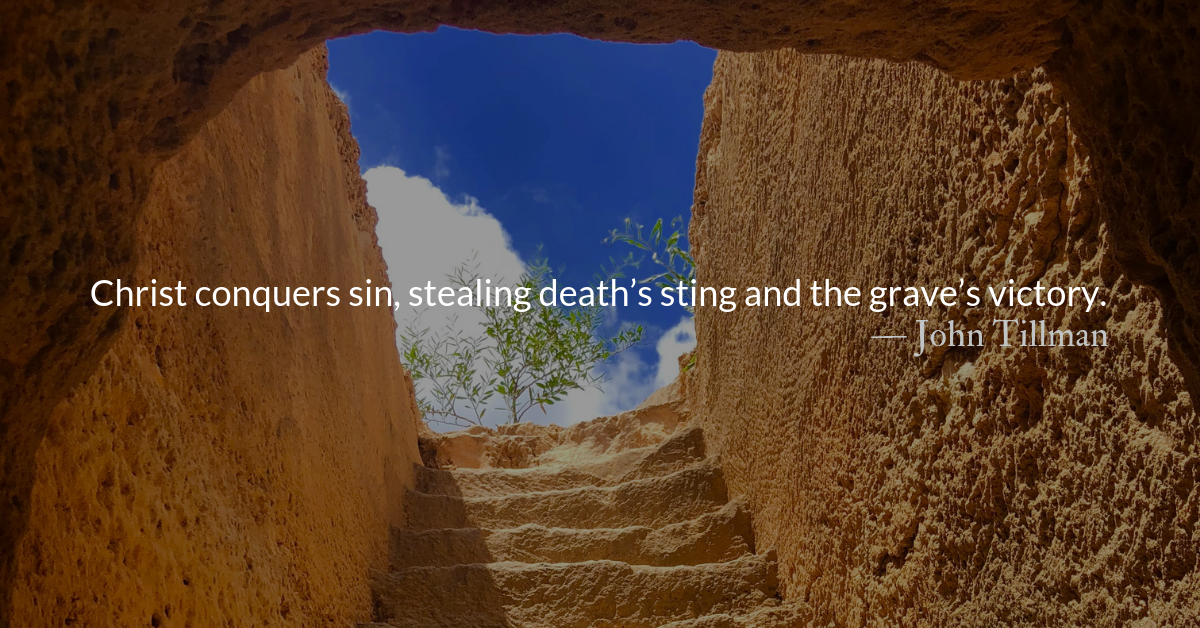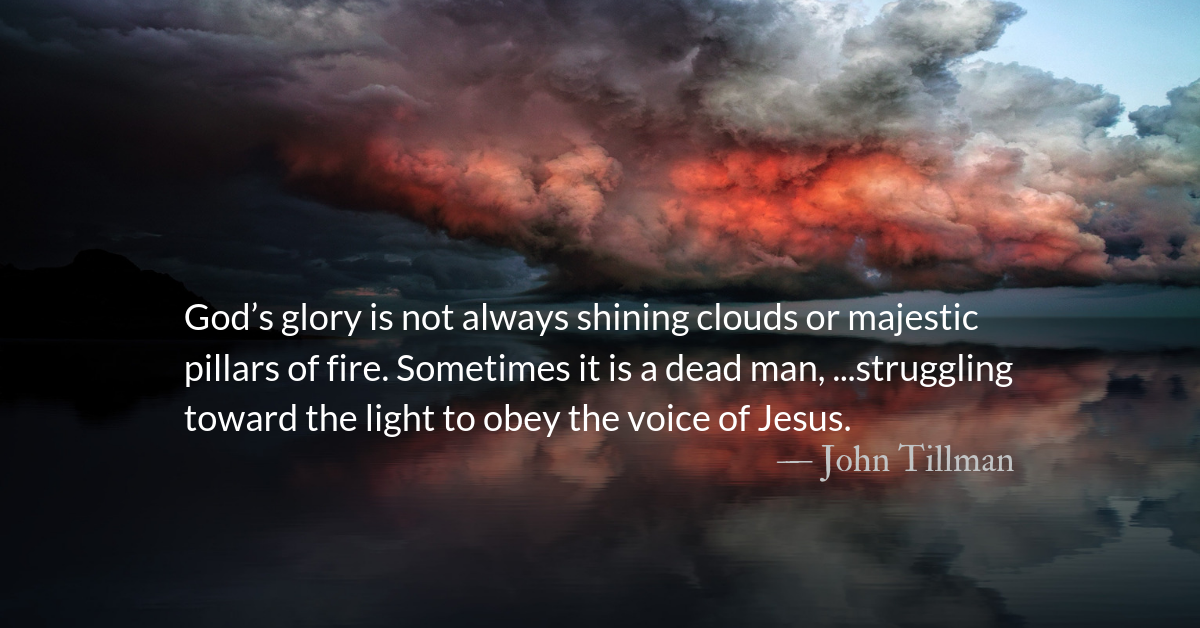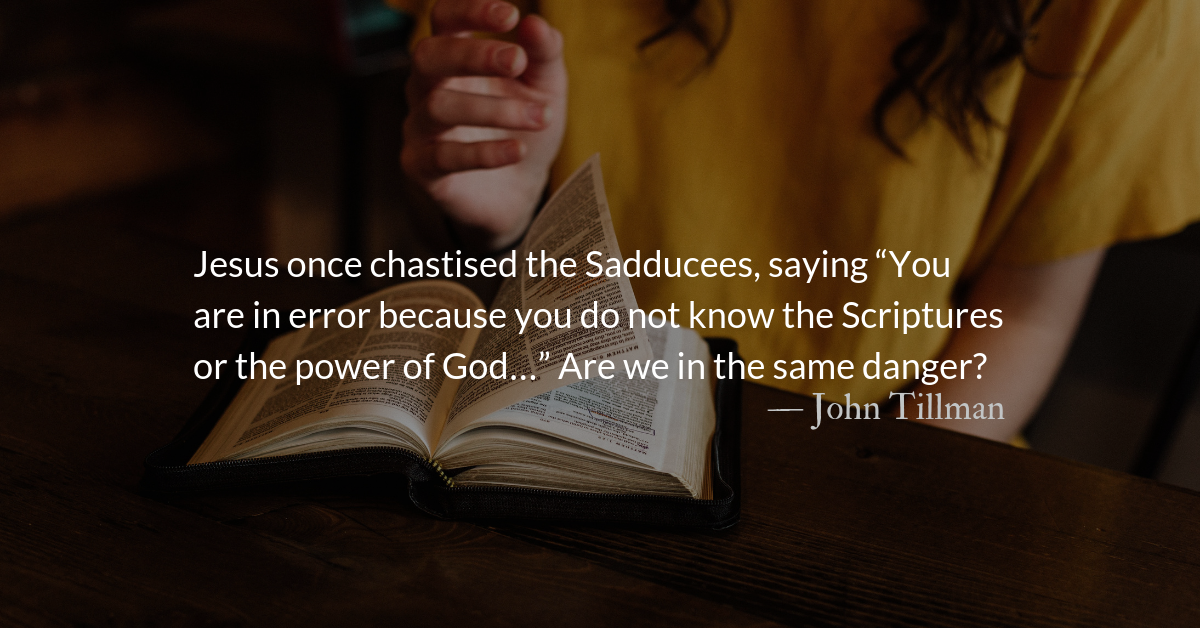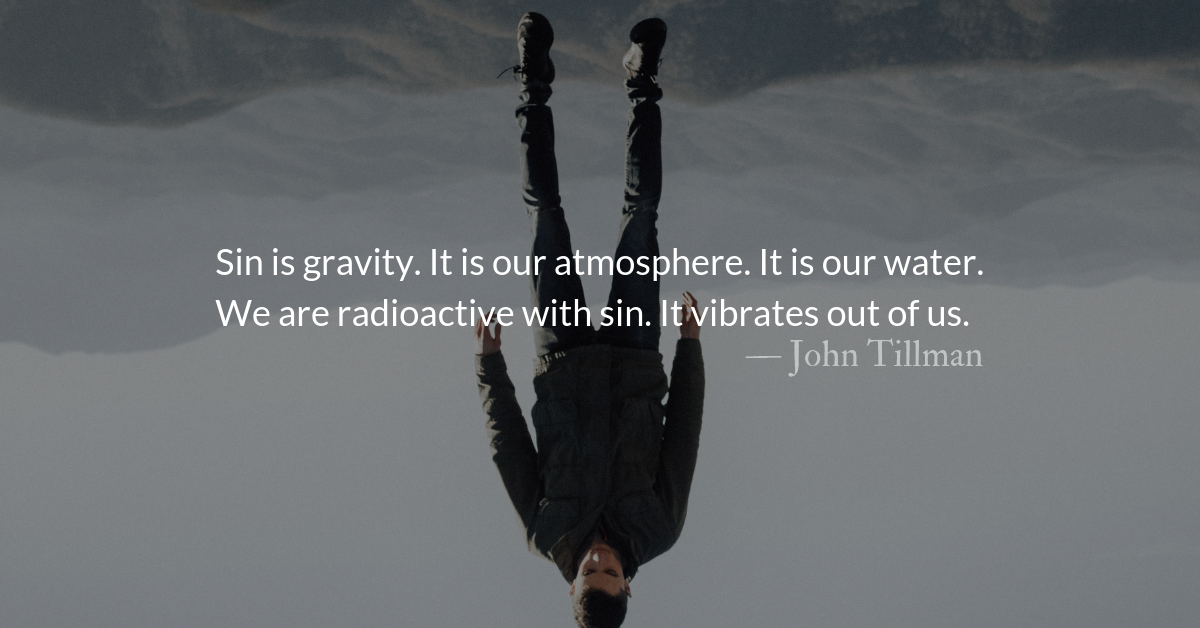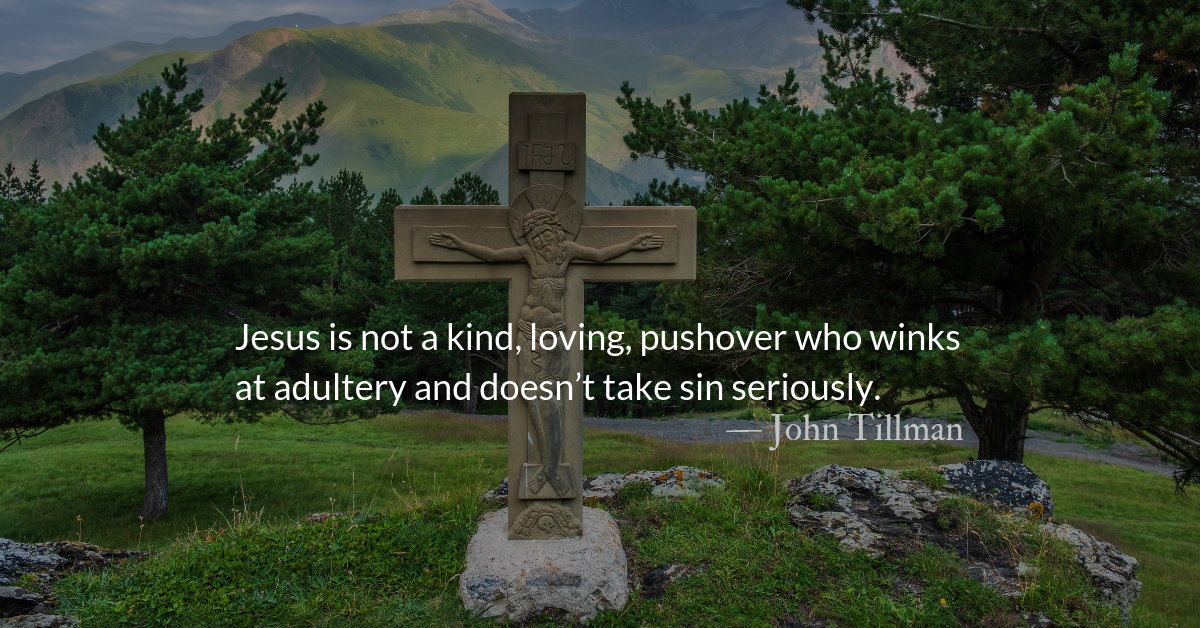John 12.27-33
“Now my soul is troubled, and what shall I say? ‘Father, save me from this hour’? No, it was for this very reason I came to this hour. Father, glorify your name!”
Then a voice came from heaven, “I have glorified it, and will glorify it again.” The crowd that was there and heard it said it had thundered; others said an angel had spoken to him.
Jesus said, “This voice was for your benefit, not mine. Now is the time for judgment on this world; now the prince of this world will be driven out. And I, when I am lifted up from the earth, will draw all people to myself.” He said this to show the kind of death he was going to die.
Reflection: Stealing Death’s Sting
By John Tillman
Lent is often a time in which believers look, with the help of the Holy Spirit at sin in our individual lives and in our communities. This week we have looked at sin and its effects on us, on our world, on our relationship with God.
We learned sin is not something we can brush off or take lightly. There are no small sins, only sins the costs and consequences of which we have denied or grossly misunderstood.
We learned actions can be sins, but that sin is an overwhelming environmental poison and influence that we are all terminally irradiated with. We are steeped in sin and the brew grows stronger and stronger the longer we deny it.
We learned scripture is not a weapon we can disassemble, using some verses to accuse others, and ignoring ones that point to our own sin. The sword of scripture cuts to the heart. But we must start with our own.
We also saw that the resurrection of Lazarus demonstrates the glory of God. Like Moses, God hid Lazarus in a cleft in a rock, covered his face, and allowed him a glimpse of God’s glory as Jesus passed by on the way to Jerusalem and to the cross.
In today’s reading we see that glory coming into sharper focus. God is glorified through Christ’s sacrifice. Sin is defeated by his death, and death is defeated in his resurrection. Christ conquers sin, stealing death’s sting and the grave’s victory. Christ is lifted up and we are drawn to him, leaving sin and death behind.
Pray this prayer over your sin and the sin of your community over this weekend:
Lord, we see ourselves in scriptures from this week.
Like the religious leaders, we protest our innocence with bloody hands.
Like the woman, we are naked, stripped, and discovered in sin.
Like the blind man, Lord, we are steeped in sin.
Like the dead man, Lord, we are dead in sin.
Lord, we want to see.
Heal our eyes so we can see our sin.
Lord, we want to confess.
Show us our sin so we can weep over it.
Lord, we want to sin no more.
Cover our nakedness and give us your purpose and power to live as we are called.
Lord, we want to wake up.
Call us from our whitewashed tombs of empty righteousness.
Untie our grave clothes and strip us of the trappings of this world.
Let us walk into the light and follow your loving voice.
* Ain’t No Grave, Cageless Birds
Prayer: The Refrain for the Morning Lessons
For God, who commanded the light to shine out of darkness, hath shined in our hearts, to give the light of the knowledge of the glory of God in the face of Jesus Christ. — 2 Corinthians 4.6
Today’s Readings
Exodus 33 (Listen – 3:49)
John 12 (Listen – 6:26)
This Weekend’s Readings
Exodus 34 (Listen – 5:48) John 13 (Listen – 5:06)
Exodus 35 (Listen – 4:31) John 14 (Listen – 4:13)
Thank You!
Thank you for reading and a huge thank you to those who donate to our ministry, keeping The Park Forum ad-free and enabling us to continue to produce fresh content. Every year our donors help us produce over 100,000 words of free devotionals. Follow this link to support our readers.
Read more about The Fragrance of Faith :: Readers’ Choice
Jesus makes clear that Mary has fulfilled the prophetic purpose of the gift as, “It was intended…for the day of my burial.“ Mary alone among the disciples has understood Christ’s prophecies.
Read more about Rend Your Hearts
Joel’s admonition is to go beyond public signals of mourning or confession. It is our heart that we must rend in mourning and confession, because God looks at the heart, not our outward appearance.

